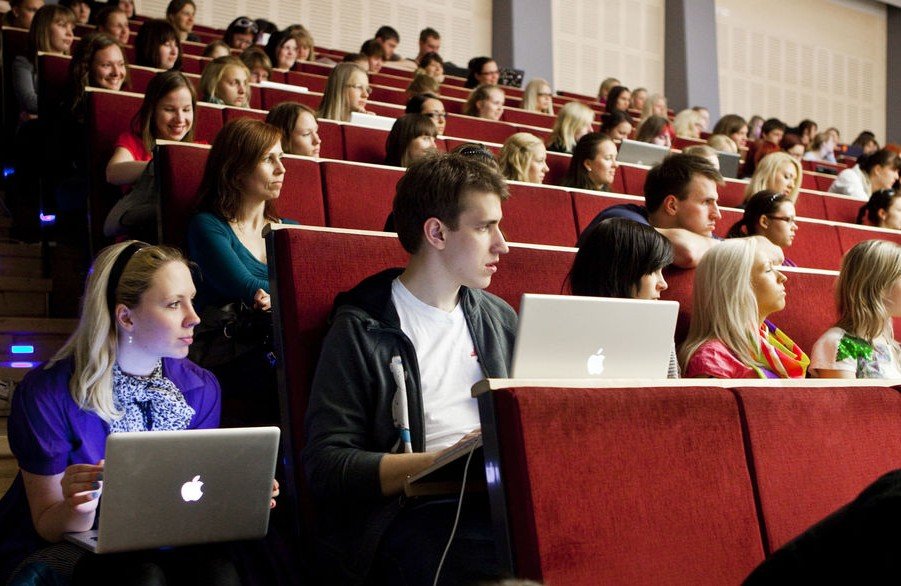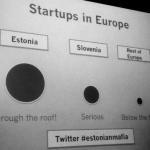Mike Reiner, the chief of Startup Wise Guys, argues that Estonia would be an excellent place to start an alternative entrepreneurship programme.
Let me propose: a master’s programme in entrepreneurship done differently. Instead of a full curriculum and a thesis, a selection of relevant lectures/workshops and work directly related to building a business. Students would spend most of the programme in an incubator model executing their start-up with the help of experienced mentors. Based on fulfilling clearly defined KPIs (funding, number of customers, number of employees and/or revenue), the students would be awarded with a bachelor’s or master’s degree at the end of the study.
The real underlying question here is whether we believe that entrepreneurship skills can be taught in theory or rather need to be experienced and acquired by executing building a business. I believe in the latter. With the help of experienced mentors and a quantitative measurable process, such an approach could be highly effective. Estonia would be an excellent place to start an alternative entrepreneurship programme. It would send a clear message to the rest of the world that Estonia believes in start-ups, learning by doing and the success of students learning more out in the field talking to customers and mentors than on a university bench writing papers.
When my marketing intern Robin told me this February that he felt having learned more within one month working for the Startup Wise Guys Accelerator than in two years studying, I couldn’t help but reflecting on education in general. Robin said he would quit his study in a heartbeat were it not for his mother who would surely come and hunt him down for not getting his degree. On one hand, his comment made me proud about the quality of our programme. On the other, it got me thinking how old-fashioned and possibly irrelevant many studies are. Entrepreneurship studies with sophisticated frameworks and theories have been popping up all over the world. While many of them offer a hands-on approach by demanding participants work on their start-up (idea), the vast majority still approaches entrepreneurship from a scientific viewpoint and traditional framework.
Education is crucial for the wellbeing of any society and it is sad to see that the traditional broadcasting model is still dominating. Innovative Estonian initiatives such as “the tiger leap”, or new international platforms like Khan Academy, aim to disrupt certain elements of the education chain. Stimulating kids, for instance, to study beta subjects and get them acquainted with computers and programming in their early years is great and should be done in a practical and playful manner and to a larger extent. Also more girls and women should be encouraged to study beta subjects.
Focus on learning by doing, adapt new cutting-edge learning platforms early on and mix foreign talent with local talent to further stimulate learning. When it comes to entrepreneurship – don’t just teach entrepreneurship, also facilitate and enable it!
Why not establish a 3-4-year programme:
- Year 1: introduction. Focus on lectures, students get acquainted with all start-up principals, work out their idea and form teams to get started with real execution. Only teams with a clear business idea and approved KPIs may proceed to the next year.
- Year 2-3(4): Teams receive a working space and dedicated mentorship. With the help of an incubator programme they go through the whole process of building a startup with help of experienced mentors. Every step is measured with a clear metrics of key success indicators. If succeeding in building a company above pre-defined thresholds (KPIs), a bachelor or master degree is awarded. If they fail, teams performance is evaluated by mentors and with a green light the individuals are asked to write a thesis on “why my start-up failed”. Given proper marketing, an interesting side-effect of this program could be a wave of international students coming to Tallinn to start their business. This would certainly expand the image of startup-friendly Estonia.
I
I do realise that this is pushing the borders of our international education system but why not be bold and try to make a difference? In the end, this is really about sending a message to the rest of the world that Estonia embraces entrepreneurship and dares to do things differently. How would Estonia present itself? I can think of many ways: small and agile, daring to constantly test different initiatives, thinking global and having large ambitions. Learning fast and teach entrepreneurship students what they really need.
I
Disclaimer: This article was first published by Mike Reiner on his blog: www.mikereiner.nl
The opinions in this article are those of the author.



This was already attempted at one of the state-run schools here in Estonia. Entrepreneurship curricula (at both the bachelor’s and graduate level) were created by an international team with input from entrepreneurs throughout northern Europe and the highest ranked entrepreneurship schools. The program was canceled (before it could even get started!) by the administrators of the university due to politics, nationalism, and short-sightedness. Higher education in Estonia is too bureaucratic, change averse, myopic, and innovation wary to build any program that does not fit their static, conservative ideas of ”academia”. Besides, when the program was being created, the developers of the program discovered that those people interested in entrepreneurship don’t want to spend 3 years in school getting a degree, they want to start their business! Keep doing what you and SWG are doing. You are doing more to build an atmosphere of creativity and entrepreneurship in Estonia than any thing the Ministry of Education has in place.
Doesn’t this already exist? It’s the DDVE program at Tallinn Uni.
@Jim DDVE is delivered in Tallinn by university of Tartu and not Tallinn Uni., this being said, @Mike what would you say about the DDVE master degree? I’m from Canada and found the structure of this program and the format delivery quite interesting, hence I’m planning to apply. Please feel free to comment on this program.
@Jim I like what they are doing at DDVE, but its still based on a clear curriculum, a thesis and not a real incubation model. There are two main sides to this: 1) Marketing – its symbolic, a great marketing stunt and you promote learning by doing. This would trigger international attention and discussions 2) Efficiency: With most entrepreneurship studies there is too much theory and administration involved and too little practice.
@Lyes See comment on my blog. Just pm me for questions.